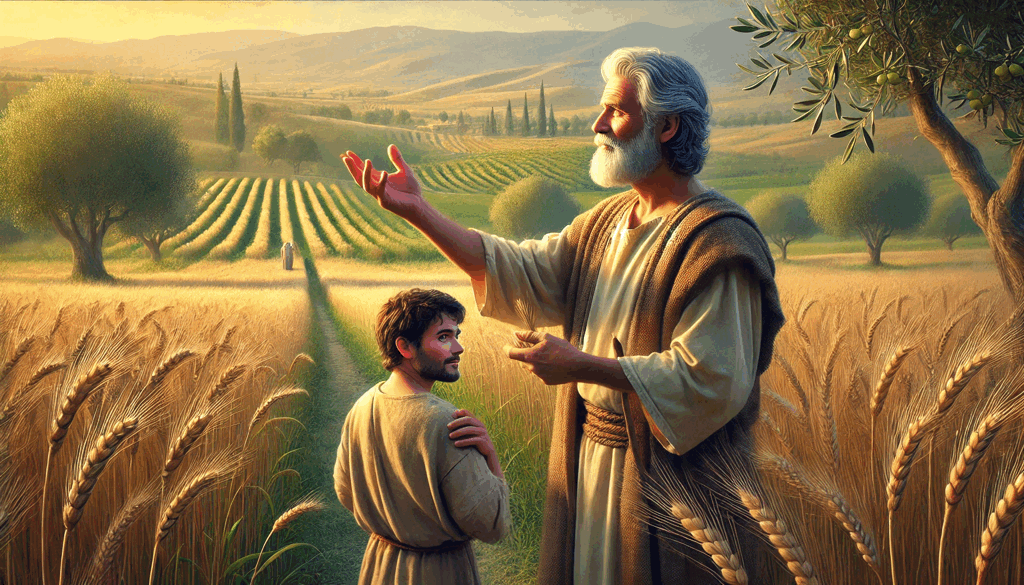What does it mean to be an heir of God? This profound concept, explored in Galatians 4, challenges our understanding of identity, freedom, and faith. Written as part of Paul’s letter to the Galatians, this chapter is a reminder that salvation is not about human effort or legalistic adherence but about receiving God’s promise through grace. Let’s journey through the key teachings of Galatians 4 to uncover its relevance for our modern lives.
Context – One Letter, One Message
Before delving into the chapter, it’s crucial to understand that Galatians was written as one continuous letter. Although we read it in chapters, these divisions are man-made and should not interrupt the flow of thought. Paul’s focus remains consistent: addressing the dangers of legalism and emphasizing the sufficiency of Christ’s redemptive work. In Galatians 4, Paul vividly illustrates how believers transition from slavery under the law to the freedom of sonship through Christ.
The Metaphor of Heirship – A Journey from Slavery to Sonship
Paul begins by comparing a child heir to a slave. Though the child is the owner of everything, they remain under guardianship until the appointed time. Similarly, humanity was under the guardianship of the law until the coming of Christ. The law, Paul argues, was a temporary measure, akin to a tutor, to guide people toward the ultimate promise.
This metaphor resonates deeply. Think of a trust fund: even if a child is technically wealthy, they cannot access their inheritance until a certain age. In the same way, the law kept humanity in a state of waiting, underscoring their dependence on Christ for true liberation.
Adoption into God’s Family – The Heart of the Gospel
Paul emphasizes that through Christ, believers are no longer slaves but sons and daughters of God. This spiritual adoption is transformative. We are not merely freed from sin but are welcomed into an intimate relationship with God, able to call Him “Abba, Father.”
The term “Abba” carries an emotional weight. It’s not a formal title but a personal cry, akin to “Dad.” This shift—from a distant, rule-based relationship to a loving, familial bond—is the cornerstone of Christian faith. For modern readers, this truth offers unparalleled comfort and assurance, especially in a world that often measures worth by performance.
The Temptation to Return to Slavery
Paul’s frustration with the Galatians is palpable. Despite being set free by Christ, they are tempted to return to the “principles of the world,” which Paul equates to slavery. Specifically, they are drawn to the Judaizers’ teachings, which advocate adherence to Jewish laws as a prerequisite for salvation.
This temptation to rely on human effort rather than God’s grace is timeless. Even today, it’s easy to fall into the trap of believing that our salvation depends on our actions. Paul’s warning is clear: turning back to legalism not only diminishes the work of Christ but also ensnares us in a cycle of guilt and inadequacy.
The Allegory of Hagar and Sarah – Two Covenants
To reinforce his point, Paul uses the story of Hagar and Sarah from Genesis. Hagar, the slave woman, represents the old covenant of the law, while Sarah, the free woman, represents the new covenant of grace. Ishmael, born to Hagar, symbolizes human effort and lack of faith, whereas Isaac, born to Sarah, embodies God’s promise.
This allegory is a call to trust in God’s provision rather than attempting to fulfill His promises through human means. It’s a lesson in patience and faith, reminding us that God’s timing is perfect, even when it challenges our understanding.
Section 6: Application for Modern Believers
How does this ancient text apply to us today? Here are three practical takeaways:
- Embrace Your Identity as God’s Child
Understanding that we are heirs of God reshapes our self-worth. In a world that often defines identity by achievements or societal standards, the knowledge that we are unconditionally loved and valued by God provides lasting security. - Resist Legalism
Legalism can appear in subtle forms, such as striving for perfection or seeking validation through religious activities. Galatians 4 reminds us that our relationship with God is based on grace, not works. Let this truth free you from unnecessary burdens. - Trust in God’s Promises
Like Abraham and Sarah, we may be tempted to take matters into our own hands when God’s promises seem delayed. However, Paul’s teachings encourage us to wait on God’s timing, trusting that His plans are far better than anything we could orchestrate.
Conclusion: Living as Heirs of Freedom
Galatians 4 is more than a theological discourse; it’s a declaration of freedom and identity. As heirs of God, we are invited into a life of grace, free from the constraints of legalism and fear. This chapter challenges us to live in the fullness of our inheritance, embracing the intimate relationship with God that Christ has made possible. In a world that often prioritizes performance over grace, let Galatians 4 serve as a reminder of the freedom and hope found in being a child of God.

